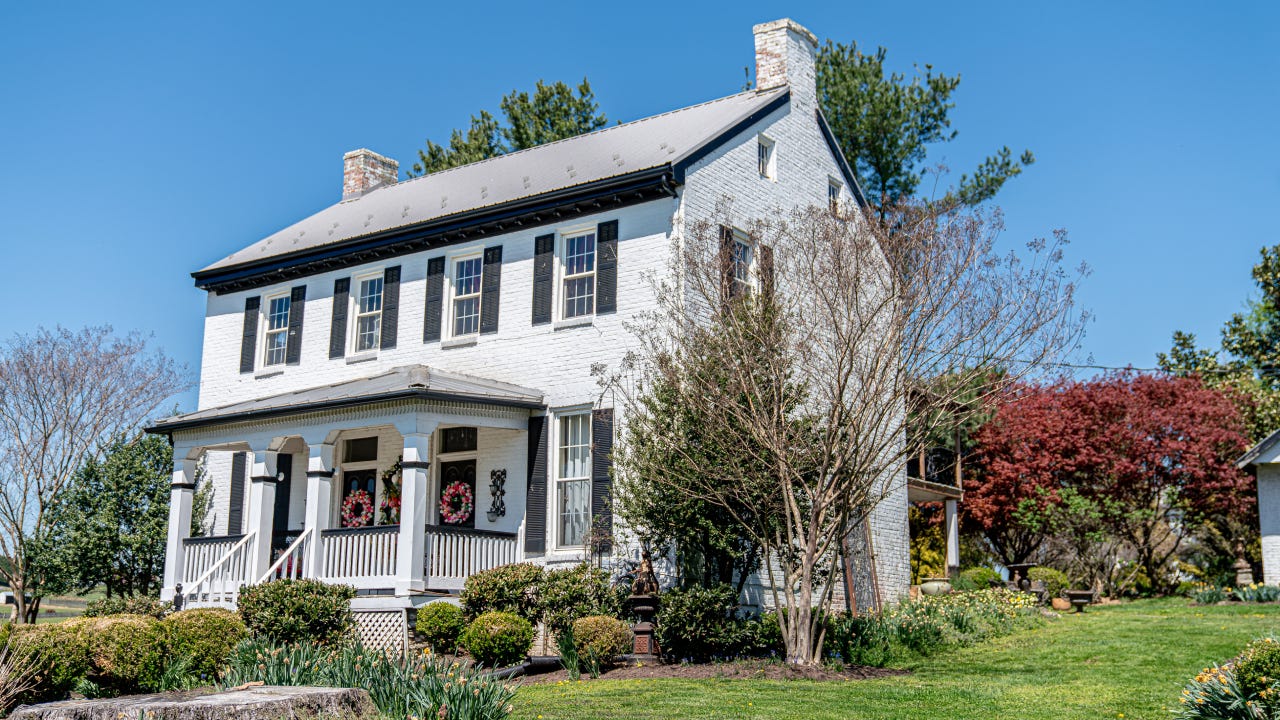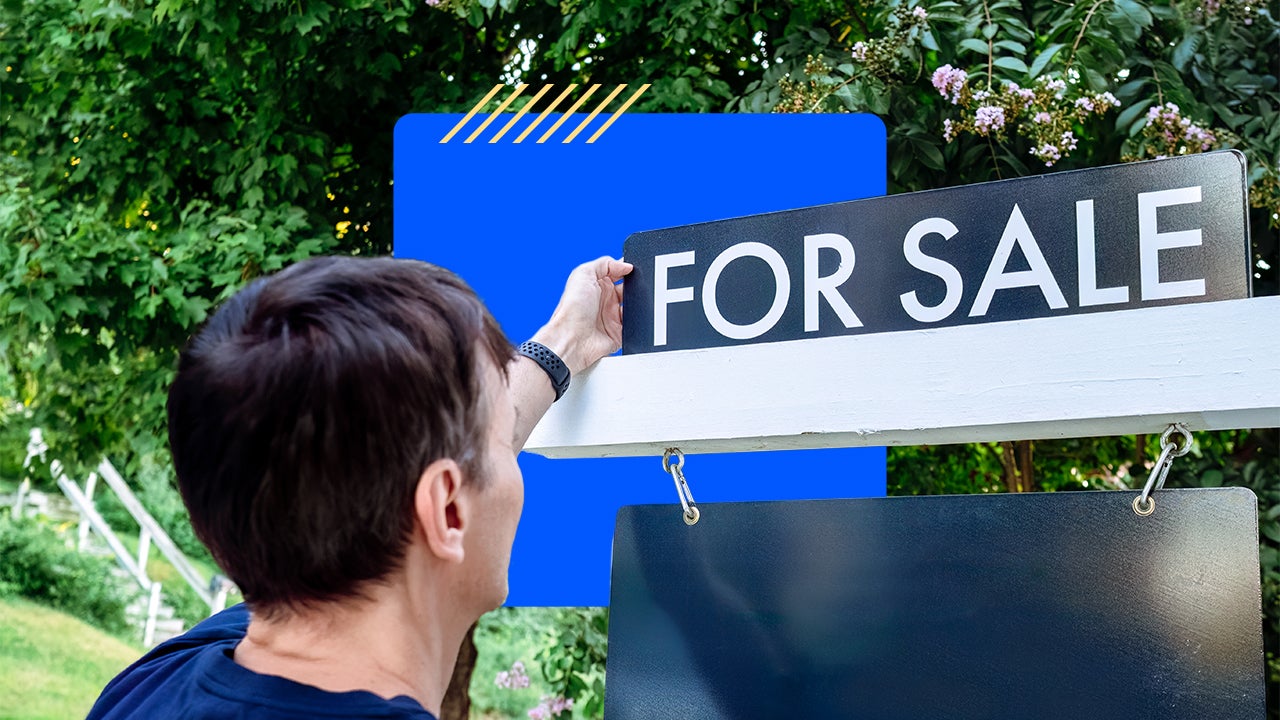How to sell a house by owner in Maryland

Key takeaways
- You're not required to use a real estate agent to sell your home in Maryland, but selling on your own takes a lot of work.
- The ‘for sale by owner’ approach lets you avoid paying a listing agent's commission, but you might still need to pay the buyer's agent.
- Without a Realtor, it’s wise to consult a local real estate attorney to ensure your transaction complies with legal standards.
There’s no law requiring you to enlist a real estate agent to sell your home in Maryland. Homeowners are welcome to do the job solo in a for sale by owner (FSBO) transaction. There are benefits to this, especially if you’re an experienced seller, but taking on the sale yourself means you’ll need to handle all the tasks usually managed by a licensed agent, which can be demanding and even risky. What follows is a guide for how to sell a house without a Realtor in Maryland, including pros and cons to consider.
Selling a house without a Realtor in Maryland
A FSBO sale involves several critical steps, all of which you’ll be solely responsible for as the seller. Here is a basic timeline to follow.
Step 1: Create your listing
Most house-hunters rely heavily on online listings, so it’s crucial to capture their attention with high-quality photos and even videos. Investing in professional photography can significantly enhance the appeal of your property online, encouraging potential buyers to click instead of scrolling on to the next property.
To go along with the photos, you’ll need an engaging description of the home that highlights its key features. This includes basic details such as age, square footage and number of bedrooms and bathrooms, and also any unique amenities like a swimming pool or water view. It’s also useful to include information about the school district and the neighborhood in general — especially in beach towns or in the Washington, D.C. suburbs.
But the most important part of your home’s for-sale listing, of course, is its price. When determining how much your home is worth, it’s useful to research local comps, or how much other similar homes in the area have been selling for. Be as objective and realistic as you can when evaluating your home’s desirability, and evaluate your local market conditions and trends to help you establish a competitive price based on fair market value. If you aim too high, you run the risk of turning off buyers before they’ve even seen the home.
Step 2: Market your property
Once your listing is complete, you need to get it in front of buyers. Sites such as Craigslist, Facebook Marketplace or Nextdoor can be helpful, as long as you use caution when sharing information about your home on these public platforms (especially if you still live there).
But the best way to promote your listing is to get it included on the local MLS, or multiple listing service, which is a database of homes for sale used by real estate pros. MLS listings are typically syndicated to big consumer sites like Zillow, which broadens the exposure and visibility of your property. There are many companies that will list Maryland sellers’ homes on the MLS for a flat fee, including Houzeo, Mr. Lister Realty, Homecoin and FSBO.com.
Marketing your home doesn’t just happen online: You’ll also have to coordinate and host in-person tours for buyers and their agents. These can be a scheduling challenge, as you’ll need to keep things neat and tidy for last-minute showings, so plan accordingly. If you’re still living there, use common-sense precautions before allowing strangers into your home.
Step 3: Lock in your buyer
How comfortable are you with negotiating? Without a skilled agent to handle this, you’ll be dealing with buyer offers yourself, including price haggling and back-and-forth conversations regarding concessions and timelines. These conversations will often be with buyer’s agents, not the buyers themselves, so you’ll be up against a pro.
One thing to note: Without the professional guidance of a Realtor, FSBO sellers should seriously consider consulting with a local real estate attorney. A lawyer can make sure the contract you hammer out with your buyer is legally sound and protects your interests.
Required disclosures for Maryland home sellers
Real estate transactions come with a lot of paperwork, in Maryland or any state. State law requires home sellers to provide various disclosures to buyers, including a four-page residential property disclosure statement outlining the property’s condition and any known defects. There may also be a flood risk statement and, if your home was built before 1978, a lead-based paint disclosure. Sellers are responsible for accurately completing these forms.
In addition, for properties that are part of a homeowners association, the seller will need to provide documentation about the HOA’s rules and financial status.
Do I need a lawyer to sell my house in Maryland?
The state of Maryland does not require you to hire an attorney to sell your home, regardless of whether you are using a Realtor or not. However, local regulations, contract language and disclosure requirements can be complex, and given the high stakes — selling a home is one of the biggest financial transactions you’ll ever make — it’s wise to consult a lawyer anyway. Better safe than sorry.
Pros and cons of selling a house by owner in Maryland
For seasoned home sellers who feel confident in their abilities, there are benefits to a FSBO sale. But there are notable downsides, too, which can heighten the level of risk involved.
Pros
- Cost savings: Not having a listing agent means not paying a listing agent’s commission, which typically ranges from 2.5 to 3 percent of the home’s sale price. The savings can be significant: The median sale price in the state was $430,000 in May 2024, according to data from Maryland Realtors, and 2.5 percent of that comes to $10,750. (However, you may still have to pay your buyer’s agent.)
- Full control: Doing it yourself grants you complete authority over all decisions without external influences. You can oversee every aspect of the sale however you see fit.
- Expedited timeline: Realtors often juggle multiple clients at once, which can lead to scheduling difficulties and long response times. FSBO sellers don’t have to wait for anyone else to make decisions, so the process moves faster.
Cons
- No expert guidance: Realtors have specialized knowledge of their local markets, which helps clients with accurate asking prices, effective marketing strategies and winning negotiations. Without this expertise, FSBO sellers must navigate it all on their own.
- Reduced buyer pool: FSBO listings may receive limited exposure when compared with agent-promoted listings, because agents use their professional networks to market properties extensively, attracting a wider array of potential buyers.
- Lower selling price: A lack of professional marketing can equate to a lower sale price. Data from the National Association of Realtors shows that homes sold with an agent’s help tend to bring in significantly higher prices.
FAQs
-
Yes. Whether home sellers use a real estate agent or not, they are responsible for all applicable state and local taxes. These might include property taxes, which will apply right up until the day you close the sale, and transfer taxes, which cover the cost of transferring ownership to the buyer. Depending on how much profit you make on the sale (and other criteria), you may also incur a federal captial gains tax.
-
A lot of paperwork is required in any real estate sale. Maryland requires sellers to complete and provide a disclosure statement informing the buyer about the condition of the home and any known issues; other important documents required are the purchase contract, the deed and/or title, and closing and/or settlement statements. If you are paying off the remainder of your mortgage on the home you’re selling, there will be paperwork surrounding that too. For sellers who do not use a Realtor, it’s smart to consult a real estate attorney to be sure all your documentation is in order.
Why we ask for feedback Your feedback helps us improve our content and services. It takes less than a minute to complete.
Your responses are anonymous and will only be used for improving our website.
You may also like

What to know when buying a car

What is Rule of 78 and how can it impact loans?

Should I sell my house now or wait?



